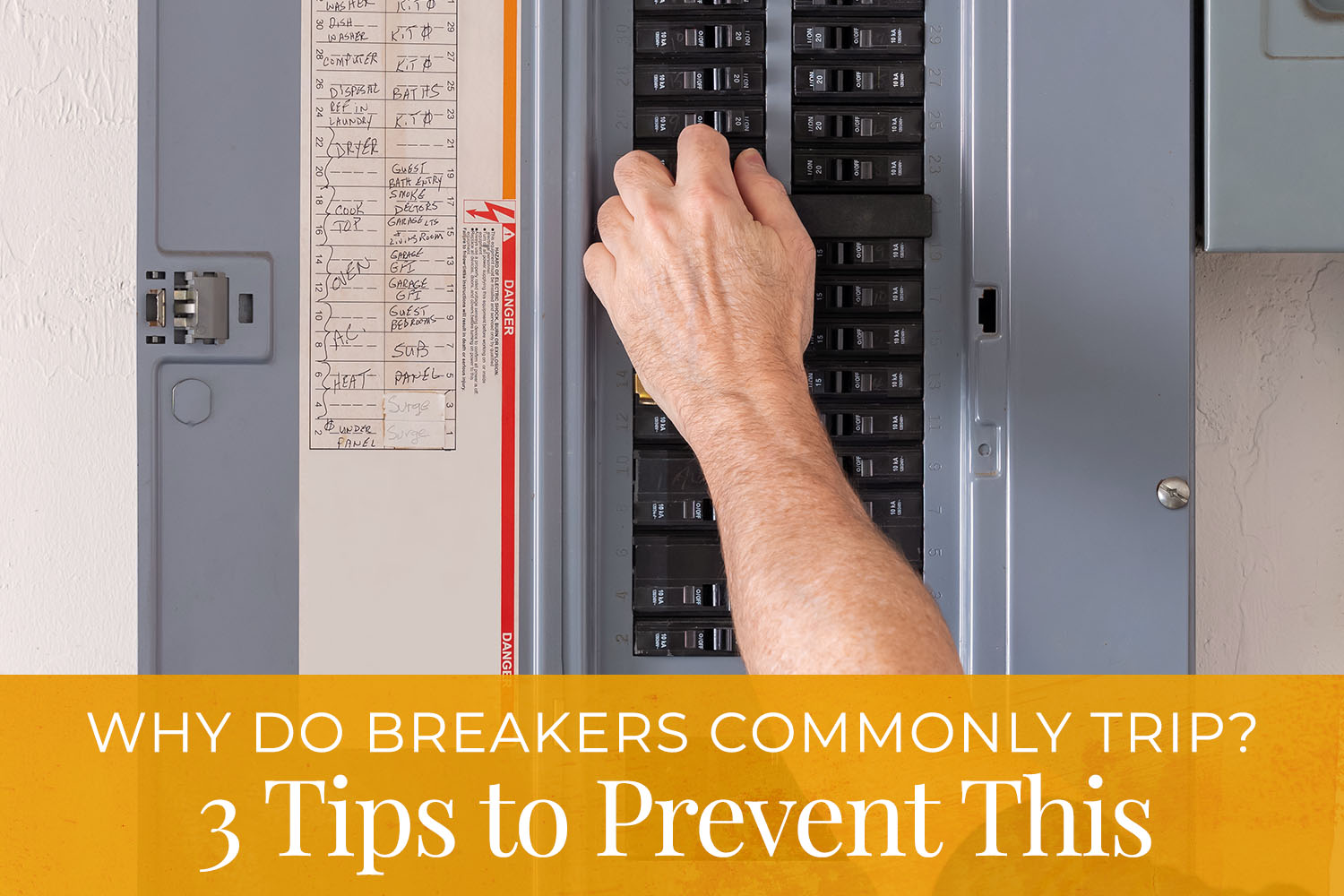Three Tips to Prevent a Breakers Trip
by
If you’ve ever experienced a sudden loss of power in your home, you’re likely familiar with the frustration of a tripped circuit breaker. It’s a common issue faced by homeowners, and understanding why breakers trip can help you prevent it from happening frequently. In this blog post, we’ll explore the reasons behind this common problem and offer three tips to prevent a breakers trip. .
Overloaded Circuits
One of the primary reasons for a tripped circuit breaker is overloading. Every electrical circuit in your home is designed to handle a specific amount of electrical load. When you connect too many devices or appliances to a single circuit, it draws more current than the circuit can handle, causing the breaker to trip as a safety mechanism.
To prevent overloading, distribute your appliances and devices across multiple outlets. Avoid plugging high-power appliances like microwaves and air conditioners into the same circuit as other devices. If you consistently face overloading issues, consider hiring an electrician to install additional circuits in your home.
Short Circuits
Short circuits occur when a hot wire contacts a neutral wire or a ground wire. This creates a low-resistance path for the current, leading to a sudden surge that can trip the breaker. Short circuits are dangerous and can potentially cause electrical fires. They often happen due to damaged wiring, faulty outlets, or appliances with frayed cords.
Regularly inspect your electrical system for signs of wear and tear, such as exposed wires or scorch marks near outlets. If you find any issues, repair or replace the faulty components immediately to prevent short circuits and breaker tripping.
Ground Faults
Similar to short circuits, ground faults occur when a hot wire comes into contact with a ground wire or a grounded surface. Ground faults can happen in areas with high moisture, like kitchens and bathrooms. Faulty appliances or damaged wiring are common culprits.
Installing Ground Fault Circuit Interrupters (GFCIs) in areas prone to moisture can help prevent ground faults. GFCIs monitor the flow of current and quickly cut off power if they detect a ground fault, reducing the risk of tripped breakers and potential electrical hazards.
Understanding the reasons behind tripped circuit breakers and taking preventive measures can significantly enhance the safety and efficiency of your home’s electrical system. By avoiding overloading, inspecting your wiring regularly, and installing safety devices like GFCIs, you can minimize the chances of experiencing inconvenient power outages and ensure a secure electrical environment for you and your family.
Start Your Electrical Career at Florida Academy
Are you ready to start a career in the electrical industry? Apply to our Electrical Technology program. By combining experienced classroom instruction with hands-on training opportunities, we quickly prepare students for a career in the field. Apply now, visit our website to learn more, contact us or call 1-800-324-9543.

